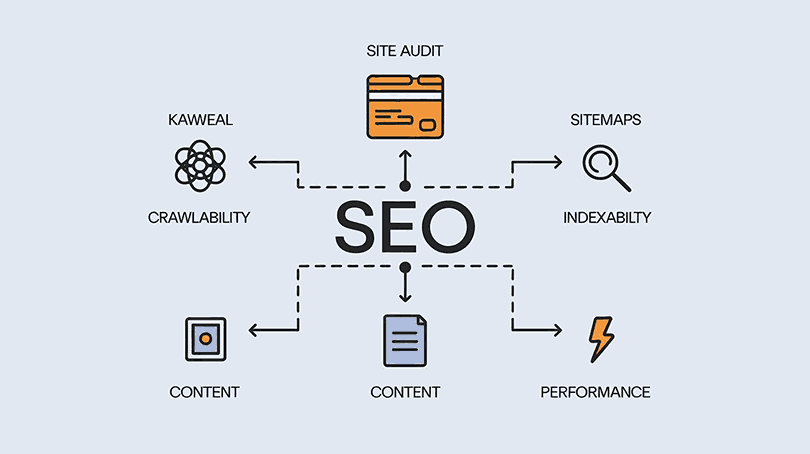


Discover how technical SEO enhances website performance. Learn key components and best practices for improved search visibility.
Technical SEO is a critical aspect of website optimization that focuses on improving the backend structure and functionality of a website. Unlike traditional SEO, which emphasizes content and keyword strategies, technical SEO ensures that search engines can effectively crawl, index, and rank your site. This article delves into the key components of technical SEO and its significant impact on website performance.
Technical SEO refers to the practices that help search engines understand your website better. It encompasses various elements, including site speed, mobile-friendliness, security, and structured data. By optimizing these components, you can enhance both user experience and search engine visibility.
The importance of technical SEO lies in its ability to improve website performance. A well-optimized site not only ranks higher in search results but also provides a better user experience. When search engines can easily crawl and index your site, it increases the likelihood of appearing in search results, driving organic traffic.
Crawlability refers to how easily search engine bots can access and navigate your website. If your site is not crawlable, search engines cannot index your pages, which means they won’t appear in search results. To enhance crawlability, ensure that your site has a clean URL structure, a proper robots.txt file, and an XML sitemap.Indexability is about whether search engines can analyze and add your web pages to their index. This can be optimized by using meta tags to control indexing, avoiding duplicate content, and submitting an XML sitemap to search engines.
Site speed is crucial for both user experience and SEO. Fast-loading pages lead to lower bounce rates and higher user engagement. According to Google, a delay of just a few seconds can significantly impact conversion rates. To improve site speed, consider optimizing images, leveraging browser caching, and minimizing HTTP requests. Tools like Google PageSpeed Insights can help identify areas for improvement.
With more users accessing websites via mobile devices, mobile-friendliness has become essential. Google employs mobile-first indexing, meaning it primarily uses the mobile version of a site for ranking and indexing. To ensure your website is mobile-friendly, use responsive design, optimized for touch navigation, and test your site using Google’s Mobile-Friendly Test tool.
Website security is paramount in today’s digital landscape. Implementing HTTPS not only secures user data but also positively impacts your search rankings. Google considers website security as a ranking factor, making it essential for technical SEO. Ensure that your website has an SSL certificate installed and that all pages are served over HTTPS.
Structured data helps search engines understand the content of your pages better. By using schema markup, you can provide additional context about your content, which can enhance your search results with rich snippets. This can lead to higher click-through rates as users are more likely to engage with visually appealing search results.
Conducting regular technical SEO audits is essential for identifying and addressing issues that may affect your website’s performance. Use tools like Screaming Frog or SEMrush to crawl your site and pinpoint areas for improvement, such as broken links, duplicate content, and missing meta tags.
A clean and organized URL structure is crucial for both users and search engines. Use descriptive keywords in your URLs, keep them concise, and avoid using special characters. This not only improves crawlability but also enhances user experience.
Utilize tools like Google Analytics and Google Search Console to monitor your website’s performance and identify potential issues. Keep an eye on metrics such as bounce rates, page load times, and user engagement to make informed decisions about your SEO strategy.
In conclusion, technical SEO is a foundational element of a successful online presence. By focusing on crawlability, site speed, mobile-friendliness, security, and structured data, you can significantly enhance your website’s performance and visibility in search engine results. Prioritizing technical SEO not only improves search rankings but also enhances user experience, leading to higher engagement and conversion rates.
